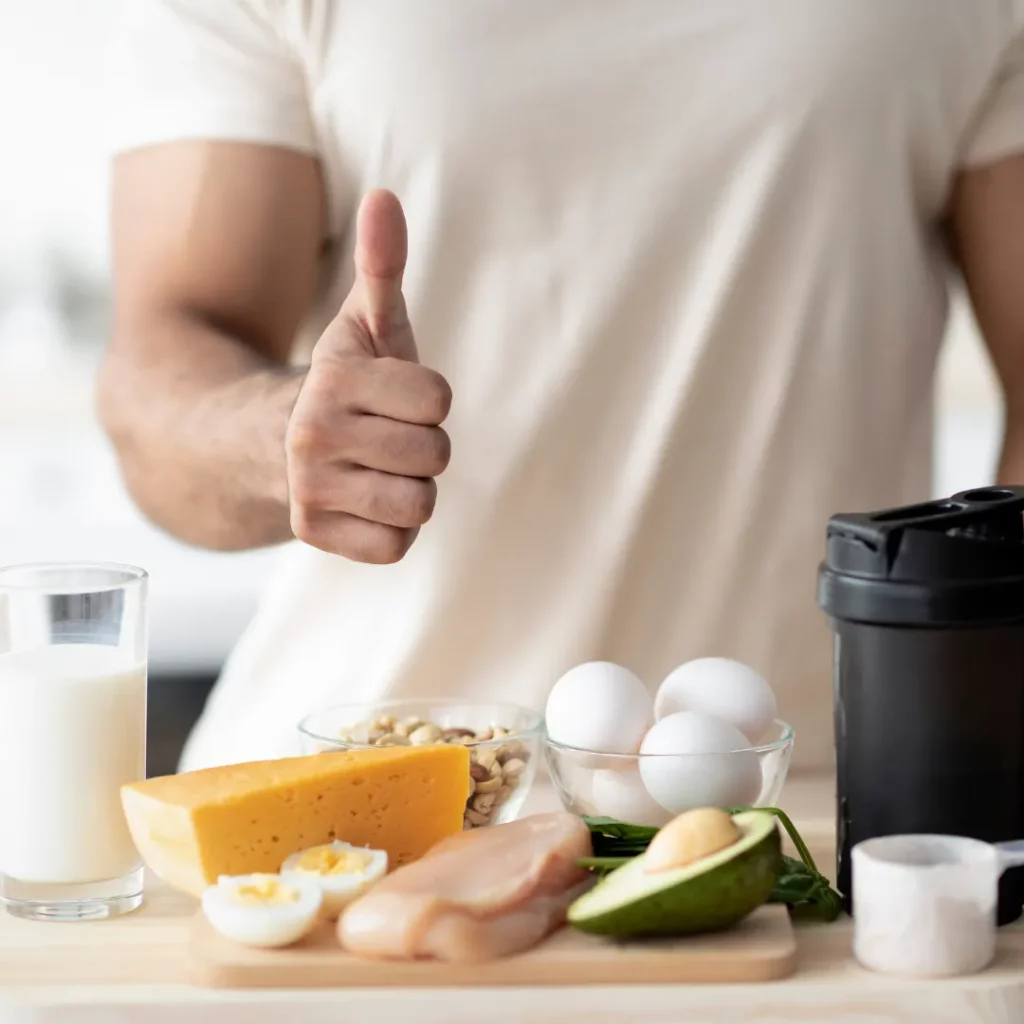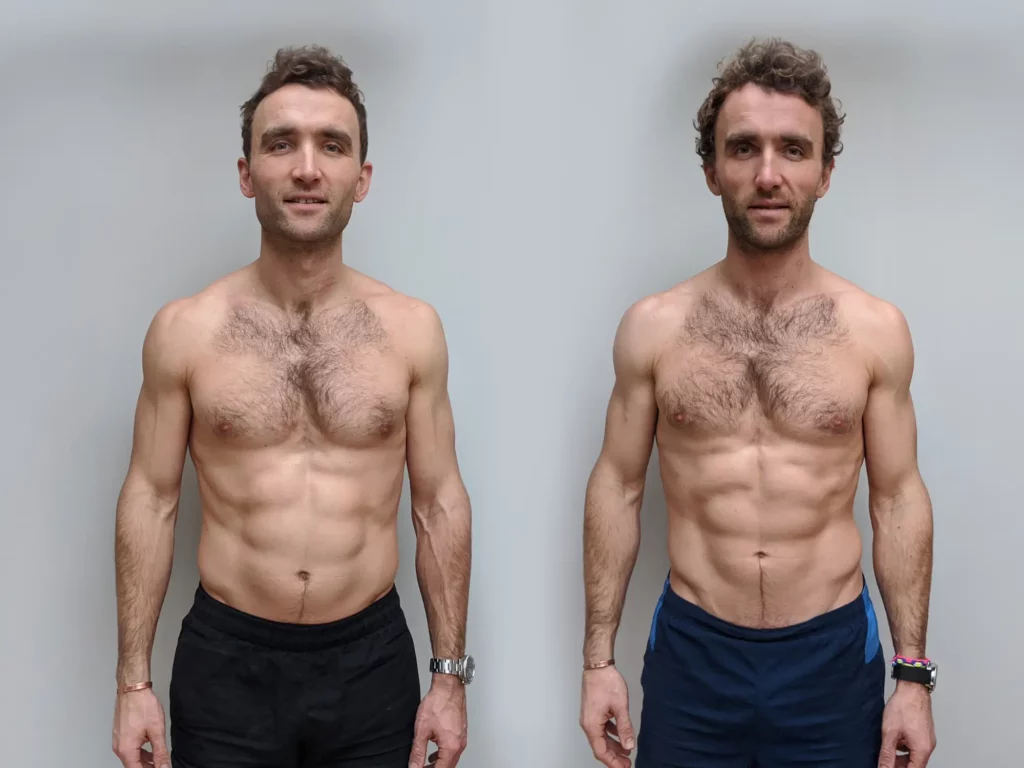During the experiment, there was a notable improvement in his cholesterol levels.
However, there was a downside to his new diet—Hugo noticed a significant drop in his libido, which he linked to the vegan lifestyle.
In the meantime, Ross, adhering to an omnivorous diet, noted varying outcomes.
He gained 10 pounds of muscle, but his body fat also increased, reaching 15%.
In a noteworthy development, Ross’s cholesterol levels showed consistency during the experiment, highlighting a distinct difference from Hugo’s situation.
Although Ross appreciated the increase in muscle mass, the accompanying body fat sparked concerns regarding the lasting effects of an omnivorous diet on his overall well-being.
One of the most surprising results centered around the twins’ digestive well-being.

Hugo’s shift to a vegan diet led to notable transformations in his gut microbiome, the collection of helpful bacteria residing in the digestive system.
An analysis of a fecal sample by Atlas Biomed has shown that Hugo’s gut microbiome has undergone changes that may improve his resilience against chronic conditions like obesity and type 2 diabetes.
The twins observed a decrease in the variety of microbes in their gut, typically associated with a reduced capacity to manage conditions like Crohn’s disease.
While the findings were enlightening, both Hugo and Ross recognized that a duration of 12 weeks was somewhat limited for an in-depth dietary investigation.
They indicated a wish to conduct the experiment again, extending it over a longer timeframe, possibly six months to a year, to gather more precise and comprehensive information.




